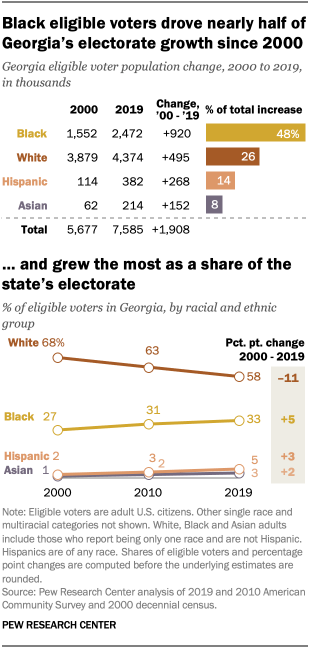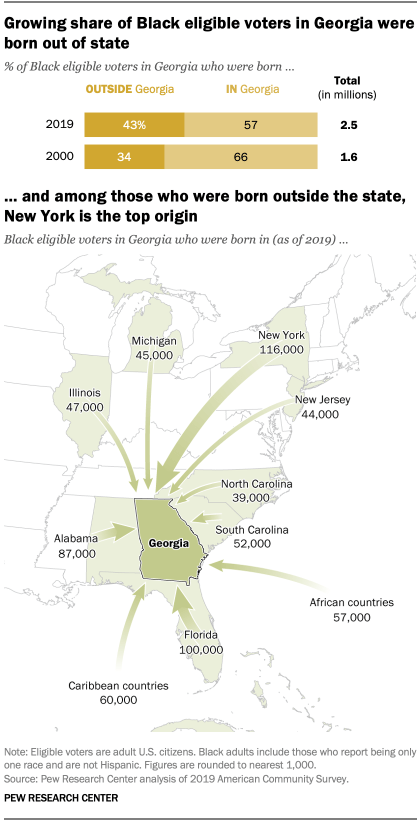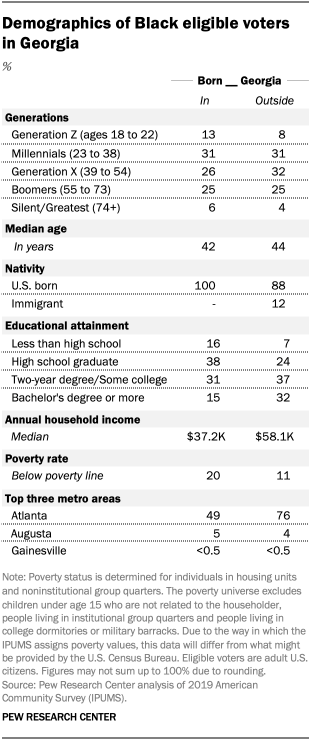What 2014 redux? Them clowns are finished
You are using an out of date browser. It may not display this or other websites correctly.
You should upgrade or use an alternative browser.
You should upgrade or use an alternative browser.
2022 Midterm Elections: NO RED WAVE! - GOP Takes U.S. House; Dems Keep U.S. Senate
- Thread starter FAH1223
- Start date
More options
Who Replied?Plus will have a hard time raising money and getting big donor endorsementsthe 2022 primaries are going to be a shyt show for Republicans
trying to get competitive swing state candidates going to be a problem for them. competitive incumbent candidates will get pushed out and replaced by MAGA lunatics, and it’s going to make them worse off against Dem candidates
GOOD!!
John Reena
Superstar
The same ppl who said Biden would get washed and that Hawley is gonna be the “smarter n more dangerous Trump” need to stop making predictions
And he ain’t doing shyt about it.McConnell knows Trump is the biggest threat to the republicans right now.


ajc.com
Kemp allies start ‘Stop Stacey’ group as possible 2022 rematch looms
Greg Bluestein
5-6 minutes
Georgia Republicans are preparing for a potential rematch between Gov. Brian Kemp and Democrat Stacey Abrams with the launch Monday of a “Stop Stacey” group aimed at thwarting her likely 2022 bid.
The group was formed by allies of Kemp and former U.S. Sen. Kelly Loeffler even before Abrams announced whether she’ll run again, a sign of deep concern among Republicans about the threat she poses to the first-term governor next year.
It aims to build a national fundraising infrastructure, mobilize conservative supporters, air anti-Abrams ads and promote media narratives targeting the Democrat ahead of her expected campaign against Kemp four years after he narrowly won their bitter 2018 race.
“We will do whatever it takes to expose Stacey Abrams’ radical network, highlight her dangerous agenda and ultimately defeat her – and her left-wing candidates – at the ballot box,” said Jeremy Brand, a senior strategist with the group, an independent committee. “There is no time to waste: We must stand up, fight back and stop Stacey.”
Abrams and her fellow Democrats enter this election cycle on an upswing. Georgia voted Democratic for president for the first time since 1992 and Republicans lost both U.S. Senate seats – and control of the chamber – in stunning January runoff defeats to Jon Ossoff and Raphael Warnock.
The Fair Fight voting rights group she created has become a fundraising juggernaut, amassing nearly $100 million in the two years since she lost the gubernatorial vote to cement itself as by far the most dominant Democratic-supporting fundraising group in the state.
And she personally recruited Warnock to challenge and eventually oust Loeffler, a wealthy former financial executive who was hand-picked by Kemp to fill a vacant seat. Should she run, she’ll campaign in tandem with Warnock, who faces a 2022 election for a full six-year term.
Kemp, meanwhile, is in need of reinforcements. Former President Donald Trump pressured Kemp to resign and promised to back a primary challenger after he refused his demands to illegally overturn the election, costing the governor support with fellow Republicans.
Governor Brian Kemp listens to a questions presented by a news reporter during a COVID-19 update press conference at the Georgia State Capitol Building in Atlanta, Thursday, January 21, 2021. (Alyssa Pointer/Atlanta Journal-Constitution via AP)
Credit: Alyssa Pointer
Credit: Alyssa Pointer
An Atlanta Journal-Constitution poll released Saturday underscored Kemp’s challenges. His approval rating stands at just 42% and his disapproval is at 51%. More than one-third of Republicans — 36% — disapprove of his performance. That’s more than quadrupled from the 8% of Republicans who held a dim view of Kemp in the AJC’s January 2020 poll.
“I plan on running in 2022. I’m not worried about any kind of primary fight. We’ll be victorious. I personally think it’s unnecessary,” Kemp told the AJC in a recent interview. “I hope at the end of the day people come our way, but if they don’t, we’ll get them back after a potential primary.”
Abrams, by contrast, is on more solid footing. According to the poll, about 51% of Georgians see the Democrat in a favorable light, including 10% of Republicans, while 41% view her unfavorably.
The Stop Stacey group will launch with seed funding of at six-figures from Kemp allies and will seek more financing from state and national Republicans hoping in hopes that rallying against Abrams can unite the fractured GOP.
It’s led by some of the same operatives who helped orchestrate Kemp’s 2018 victory but are no longer running his political strategy. Kemp recently hired a new team of consultants to shape his campaign, while his former network is behind the Stop Stacey group and others from outside.
The group’s website, StopStacey.org, echoes the messages that dominated Kemp’s 2018 bid, calling her a “radical leftist” and tying her to Hollywood elite and billionaire George Soros.
“She ‘flipped’ Georgia for Joe Biden and Kamala Harris. She delivered two Senate seats for Chuck Schumer. Now, she’s aiming for total control,” it reads. “We have to Stop Stacey and Save America before it’s too late!”
10/23/2018 -- Atlanta, Georgia -- Georgia Gubernatorial Democratic candidate Stacey Abrams and Republican candidate Brian Kemp greet each other before a live taping of the 2018 Gubernatorial debate for the Atlanta Press Club at the Georgia Public Broadcasting studio in Atlanta, Tuesday, October 23, 2018. (ALYSSA POINTER/ALYSSA.POINTER@AJC.COM)

Black eligible voters make up 48% of growth in Georgia electorate since 2000
NEWS IN THE NUMBERS
December 15, 2020
Black eligible voters have accounted for nearly half of Georgia electorate’s growth since 2000
By Abby Budiman and Luis Noe-Bustamante
Black eligible voters in Georgia have played a significant role in driving the growth of the state’s electorate over the past two decades. Between 2000 and 2019, Georgia’s eligible voter population grew by 1.9 million, with nearly half of this increase attributed to growth in the state’s Black voting population, according to a Pew Research Center analysis of new census data.
How we did this

As an emerging battleground state in national elections, Georgia’s changing electoral makeup has been the focus of renewed attention in the 2020 election cycle. This is particularly true now given that the Jan. 5 runoff election for the state’s two U.S. Senate seats could determine which party controls that chamber.
Prominent public figures such as Democrat Stacey Abrams, a former lawmaker who lost a close race for governor in 2018, have highlighted Georgia’s racial and ethnic diversification as a major driver behind Joe Biden’s victory.
Biden won the state by a very narrow margin of just 0.2%, with about 12,000 votes more than Donald Trump. But it was the first time a Democratic presidential candidate had won the state in nearly three decades.
In 2019, the Black voting population in Georgia reached a record high of 2.5 million eligible voters, making up a third of the state’s total electorate. As a share of eligible voters in the state overall, Black voters saw a 5 percentage point increase between 2000 and 2019. This was the highest growth rate of any racial or ethnic group in Georgia – and also the largest percentage point increase among Black voters in any state in the country.
Related: Black, Latino and Asian Americans have been key to Georgia’s registered voter growth since 2016
The Hispanic and Asian American voting populations in Georgia have also grown significantly, more than tripling in size between 2000 and 2019. However, these groups accounted for much smaller shares of the state’s electorate, 5% and 3%, respectively. The number of White voters in the state also grew during this time, but at a lower rate than other major racial and ethnic groups. As a result, the White share of Georgia’s eligible voters declined by 11 points, though the group still accounted for the majority (58%) of Georgia’s electorate in 2019.
Demographics of Georgia eligible voters by race and ethnicity
Migration from outside Georgia a major source of growth for state’s Black electorate

The growth of Black eligible voters in Georgia has been largely driven by migration into the state from other parts of the country, as well as from outside the United States. Between 2000 and 2019, Black eligible voters who were born outside of Georgia accounted for a majority (58%) of the increase in the state’s Black voting population. (It is not possible to know from American Community Survey data when these individuals relocated to the state of Georgia. Eligible voters include both U.S.-born individuals and naturalized immigrants.)
In 2019, 43% of Black eligible voters in Georgia were born outside of the state (1.1 million out of 2.5 million), up from 34% in 2000 (532,000 out of 1.6 million). Over the same period, the number of Black voters who were born outside of Georgia doubled, while the number of Black voters born in the state increased by just 38%.
Georgia’s Black eligible voters born outside of the state have diverse origins. In 2019, among those born in the U.S., about 116,000 are from New York, more than double their number since 2000. They are followed by those born in Florida (100,000), Alabama (87,000), South Carolina (52,000) and Illinois (47,000).
These numbers have shifted in the past two decades. In 2000, those born in Alabama (66,000) and Florida (52,000) were the largest groups among Georgia’s Black eligible voters born outside of the state. New York (50,000), South Carolina (40,000) and North Carolina (24,000) rounded out the top five. Black eligible voters who were born outside the U.S. have also played a significant role in the growth of Georgia’s Black electorate. In 2019, about 123,000 Black eligible voters in the state were born outside of the country, with most tracing their origins to nations in the Caribbean (60,000) and Africa (57,000). Among those born in the Caribbean, the top countries of origin were Jamaica, Haiti, and Trinidad and Tobago, while Nigeria, Ghana and Ethiopia top the list among those who were born in Africa.

Meanwhile, naturalized citizens only make up 5% of Georgia’s overall Black electorate, but their numbers have grown more than fourfold over the past two decades, from 26,000 in 2000 to 123,000 in 2019. During this time, the country overall has also seen a substantial increase in its immigrant electorate.
Immigrant eligible voters in Georgia make up even larger shares of the Asian and Latino electorates than among the Black electorate. About three-in-four (74%) Asian eligible voters and one-in-four (26%) Latino eligible voters are naturalized citizens in the state.
Black eligible voters who were born outside Georgia have demographic characteristics that differ from those who were born in the state.
Those born outside the state had higher levels of education overall. In 2019, they were over twice as likely to have at least a bachelor’s degree or more education. Additionally, their median household income was 56% higher than that of the Georgia born ($58,100 vs. $38,200).
Poverty rates also differ between the groups. One-fifth of Black eligible voters (20%) who were born in the state of Georgia lived in poverty, a higher share than among those born outside the state (11%). In addition, Black eligible voters who were born outside the state were more likely to reside in the state’s largest urban areas. The Atlanta metro area is home to 76% of Black eligible voters who were born outside of the state, while just 49% of Georgia’s Black eligible voters born in the state resided in the metro.
My Favorite Hue, is Stacey Blue



Gerrymandering - every place in Ohio with anything larger than a population of 80k is blue as a Crip,But Arizona and Georgia have been trending bluer, Ohio redder.
Ohio is now redder than Texas.

Meanwhile the Ohio Dems just gutted their staff.
Cave Savage
Feminist
Gerrymandering - every place in Ohio with anything larger than a population of 80k is blue as a Crip,
Meanwhile the Ohio Dems just gutted their staff.
But Trump won the popular vote in Ohio by over 8%, both times. It used to be a bellwether state but it's solidly red now.
He can’tAnd he ain’t doing shyt about it.

Uncle Phil 36
All Star
Tim Ryan planning to declare run for Ohio Senate seat by March: NYT
Tim Ryan planning to declare run for Ohio Senate seat by March: NYT
Tim Ryan planning to declare run for Ohio Senate seat by March: NYT
Kingcobrakai
Pro
No matter the amount of gerrymandering they get away with, they are done. The party as a “conservative, pro-business, pro-Christianity, personal responsibility, small government” tent is over. Because of the one thing:
They let Trump be an avatar for ALL of it, despite the hypocrisy of it all. He’ll be the avatar for anything if he thinks people like him enough to give him money. And now that’s left them with racism, anti-constitutional feelings, conspiracy theories, and outlandish corruption.
So either you have to draw the Trump voters, which means putting up unelectable crazies in new swing districts OR you put up “RINOs” who can draw back anti-Trump fence-sitters. But you can’t have both.
We already know what they chose. MAGA got them to the dance, but MAGA also lost them the dance-off. Once the impeachment trial and Insurrections investigations are over, the double down will bleed them back to pre-MAGA numbers. The magic is already starting to wear off. They know it. They have got to have ENOUGH crazies spread out over too much space to make it work. And they can’t do it much more than they already have.
It just does not matter how badly they draw the maps up, the suburbs are gone. The suburbs were always the safety net for Republicans in gerrymandering. Carve up the cities, expand in the suburbs, take in a rural stronghold...... District complete. But not anymore. I guess people are forgetting that the Dems retained the house, with Trump on the ballot AND with 2010 GOP gerrymandering.
It seems like the people who are scared just want Dems to push through everything possible as fast as possible just to go ahead and cede power back to Republicans again.
5 GOP States only have 1 district (Montana, Alaska, North Dakota, South Dakota, and Wyoming)
What are Utah, Mississippi, Alabama, Arkansas, West Virginia and some of these smaller states that only have 1 blue seat (a couple have 0) gonna really do?
They have to pull from Texas/Ohio/Georgia/Florida at this point, and they’ve been gerrymandered to hell and that’s if the numbers shake out from the census. (Which we’re still waiting on the full investigation from that where we find out that *gasp* the GOP pushed Trump to end it early to try to ensure the numbers wouldn’t end up favorably for the Big Blue states!)
I’ll panic in August or something if I really have to.
ZoeGod
I’m from Brooklyn a place where stars are born.
Pretty much expected. Every time the GOP loses they double down on gerrymandering and voter suppression. They got the federal courts backing them. This is why HR1 needs to pass. This is why supreme court reform is needed. The senate map favors the Dems in 2022 but Dems could lose the House. The House majority is the slimmest it’s ever been. Also in the long run the Senate is in the GOP favor. By 2040 70% of the US population will be represented by 30% of the senate. And 30% of the population will be represented by 70% the senate. The Rethuglican party is far from dead. Minority rule has been their goal since the 60s and they are closer to it. A new voting rights law and expanding the courts is the best way to blunt it. Also having Democratic voters engaged so they continue to come out in force for midterms is important. Dems better not rest in their laurels just because we ousted Trump. After every win people always talk about how the GOP is done but they aren’t.
Last edited:
Pretty much expected. Every time the GOP loses they double down on gerrymandering and voter suppression. They got the federal courts backing them. This is why HR1 needs to pass. This is why supreme court reform is needed. The senate map favors the Dems in 2022 but Dems could lose the House. The House majority is the slimmest it’s ever been. Also in the long run the Senate is in the GOOs favor. By 2040 70% of the US population will be represented by 30% of the senate. And 30% of the population will be represented by the senate. The Rethuglican party is far from dead. Minority rule has been their goal since the 60s and they are closer to it. A new voting rights law and expanding the courts is the best way to blunt it. Also having Democratic voters engaged so they continue to come out in force for midterms is important. Dems better not rest in their laurels just because we ousted Trump. After every win people always talk about how the GOP is done but they aren’t.
Only thing that can tear the GOP apart os the formation of "The Patriot Party"